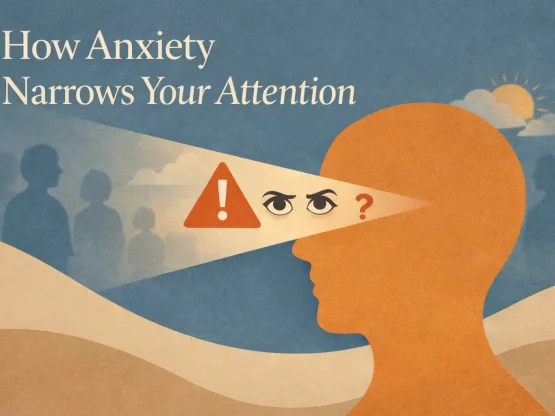Be Heard, Gain Insight, and Change
Anxiety, addiction and relationship specialist in Crouch End and Muswell Hill
Feeling Overwhelmed, Stuck, or Worn Down by Dread or Anxiety?
If you are struggling with ongoing worry, panic, compulsive habits, or relationship difficulties, you are not alone.
Many people come to therapy feeling exhausted by their thoughts, unsure why things have not improved, or quietly fearing that something is wrong with them.
Accredited Counsellor and Psychotherapist in Crouch End and Muswell Hill
I’m Andrew Martin, an accredited counsellor and psychotherapist with over 21 years of experience, based in Crouch End (N8) and Muswell Hill (N10), North London.

I specialise in working with people who feel caught in ongoing anxiety, worry, dread, or a persistent sense that something is not quite right. This includes anxiety disorders such as social anxiety, OCD, health anxiety, generalised anxiety disorder, and other long standing patterns of fear and worry.
I also work extensively with addiction and compulsive behaviours, and with relationship difficulties for individuals and couples.
My approach is calm, supportive, and practical. I help people understand what is keeping them stuck, while gently building the skills and confidence needed to feel more grounded and in control again. Therapy with me is about taking the time to understand what you are carrying, whether that is anxiety, sadness, or something harder to name, and gently supporting the kind of change that helps things begin to feel different, not just talked about.
My Approach to Counselling
The best counselling works when the approach matches your needs and goals, whether you want to explore the past or focus on practical solutions.
My integrative approach combines evidence-based therapies such as Cognitive Behavioural Therapy (CBT), Rational Emotive Behaviour Therapy (REBT), and Acceptance and Commitment Therapy (ACT), delivered in a supportive and collaborative style.
I specialise in helping people manage anxiety disorders, overcome addictive or compulsive behaviours, and work through relationship difficulties. My practice is based in Crouch End (N8), and I also work with many clients from the nearby Muswell Hill (N10) area. My goal is to provide counselling and psychotherapy that gives you both insight and practical tools to make lasting changes.
Click here to learn more about my qualifications and experience.
What To Expect
Your first counselling session is an opportunity for us to get to know each other and to explore what has brought you here. We might talk about the difficulties you are facing, such as anxiety, stress, OCD, health anxiety, panic attacks, or relationship challenges. This is also a chance for you to ask me questions about the counselling process, and I will explain everything as clearly as possible.
I will outline important aspects such as confidentiality, my approach to therapy, and what working together might look like. By the end of the session, you should have a good sense of whether you feel comfortable with me and whether you’d like to continue.
From my side, I will listen carefully, begin to understand your concerns, and share initial thoughts on the therapeutic direction I recommend. If we both feel there is a good fit, we can agree on a regular weekly session. These sessions are your dedicated time, giving you consistency and space to focus on change.
Counselling sessions usually last 50 minutes and take place at The Vale Practice in Crouch End (N8). I also work with many clients from Muswell Hill (N10), Highgate, and across North London, and my goal is to provide a space where you can make lasting changes.
What do you need help with?
I specialise in counselling for anxiety disorders, addictive behaviours, and relationship difficulties. Many people come to me for help with issues such as OCD, health anxiety, social anxiety, panic attacks, stress, or alcohol use. Others want support with relationship problems, whether as an individual or as part of a couple.
You can click on any of the topics below to read more about how I work with these difficulties and the types of therapy that may help.
I’m always happy to answer questions, so please feel free to contact me.
Private Healthcare Insurance
I am a registered provider with many of the leading private healthcare organisations. If you have private health insurance that covers counselling, psychotherapy, or addiction counselling, you may find that they will pay for some of the cost of seeing me.
I am a registered provider with Aviva Healthcare, Cigna Healthcare, WPA, and Vitality Health.
If your healthcare provider isn't mentioned above, it's still likely they may cover your treatment. Please feel free to email me so we can discuss it further. Unfortunately, I do not work with patients insured by Axa PPP or BUPA. I’m sorry for any inconvenience this may cause.







Article: How Anxiety Narrows your Attention
Many people think of anxiety as fear. A surge of panic, a racing heart, a sudden sense that something is wrong. But for many people, anxiety is quieter and more persistent than that.
A helpful way of understanding anxiety, including how it develops and is maintained is to think about what it does to your attention.
When anxiety is active, attention narrows. Your mind becomes focused on threat, risk, and what might go wrong. This happens automatically and often without you realising it. You are not choosing to focus this way. Your nervous system is doing it for you.

As attention narrows, certain things come sharply into focus. Possible danger. Uncertainty. Small signs that something might not be right. At the same time, other information fades into the background, including context, perspective, and signs that things may actually be safe or manageable.
This is one reason anxiety can feel so convincing. It is not just about the thoughts you have. It is also about what your mind allows you to notice.
When Attention Locks Onto Threat
You might recognise this in everyday situations.
For example, you walk into a room full of people. If anxiety is present, your attention may immediately scan for signs of judgement or rejection. A neutral facial expression. A pause in conversation. Someone not making eye contact.
These details stand out. They feel important. Your mind starts interpreting them, often quickly and harshly.
At the same time, other information is filtered out. Friendly faces. People who are distracted with their own thoughts. The fact that nothing overtly negative is actually happening.
Because attention is narrowed, the anxious interpretation feels like the full picture. It can feel as though you are seeing the situation clearly, when in reality you are seeing only a small and threatening slice of it.
This is not a flaw or a personal weakness. It is a survival response. In genuinely dangerous situations, narrowed attention helps us react quickly. It allows fast decisions and immediate action.
The problem arises when this same system switches on in everyday situations, such as social settings, health worries, or uncertainty about the future. In these contexts, narrowed attention does not lead to resolution. Instead, it often leads to overthinking, rumination, and a sense of being stuck.
Why Reassurance Often Does Not Help
When attention is narrowed, reassurance struggles to land.
You may understand logically that your fears are unlikely or exaggerated, yet still feel unconvinced. It can be frustrating and confusing. You might tell yourself that you should be more rational, more confident, or better at calming yourself down.
But the issue is not a lack of logic. It is that your attention is locked.
Trying to reassure yourself while anxious can feel like trying to see a wide landscape through a narrow tunnel. You know the bigger picture exists, but you cannot access it properly in that moment.
Over time, this pattern can become habitual. The brain learns that scanning for threat feels important, even when it is exhausting. Anxiety can begin to shape how you experience the world, making it feel more dangerous than it really is, not because danger has increased, but because attention has become trained to look for it.
Understanding Anxiety Differently
Seeing anxiety as a pattern of attention can be surprisingly relieving.
Instead of viewing it as a personal failing or a sign that something is wrong with you, it becomes something understandable. A process that makes sense given how the brain is designed to protect us.
Patterns of attention are not fixed. They can change. Not instantly, and not through force, but gradually, as awareness widens and flexibility returns.
When attention is able to move more freely, anxiety often loosens its grip. Situations can begin to feel different, not because they have changed, but because your mind is no longer locked onto threat alone.
For many people, simply understanding this process helps anxiety feel less mysterious and less overwhelming. It becomes something that can be noticed and worked with, rather than something that defines them.

Client's Experience
Therapy offers a space to better understand yourself and your emotional responses. It can help you to recognise patterns in your relationships, make sense of past experiences, and find new ways of relating to yourself and others.
Clinic Locations
Crouch End N8
Muswell Hill N10
Parking in Muswell Hill, and Crouch End
If you are seeing me for counselling or psychotherapy in Muswell Hill, North London, parking is free in all the surrounding roads. Try to leave an extra ten minutes just in case it is hard to get a space. Click to see a map of the local area.
For counselling or psychotherapy in Crouch End, North London, there is free parking most of the day with some exceptions. Click to see a map of the local area.
Other North London Locations
- Rutland House Surgery, 40 Colney Hatch Lane, London, N10 1DU. Get directions here.
- Crouch Hall Road Surgery, 48 Crouch Hall Road, London N8 8HJ. Get directions here.
Get in touch
Feel free to contact me if you have any questions about how counselling works, or to arrange an initial assessment appointment.
This gives us a chance to discuss what has brought you to counselling, whether it may be helpful for you, and whether I am the right therapist to support you.
All enquiries are treated in the strictest confidence and handled securely. I will respond to your message as soon as I am able.